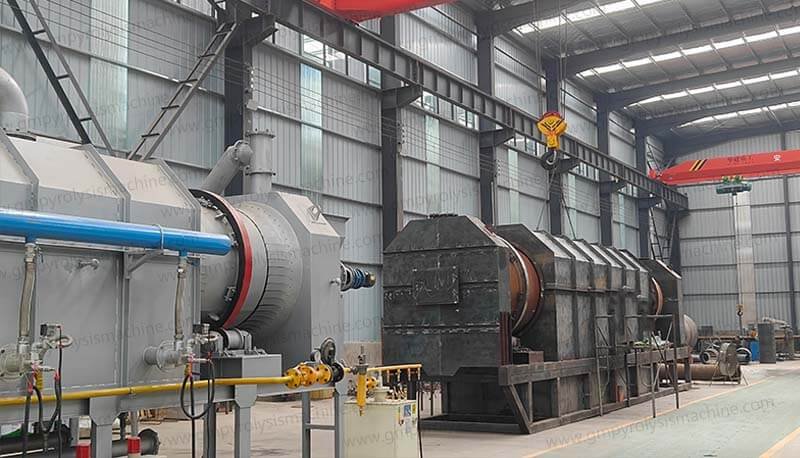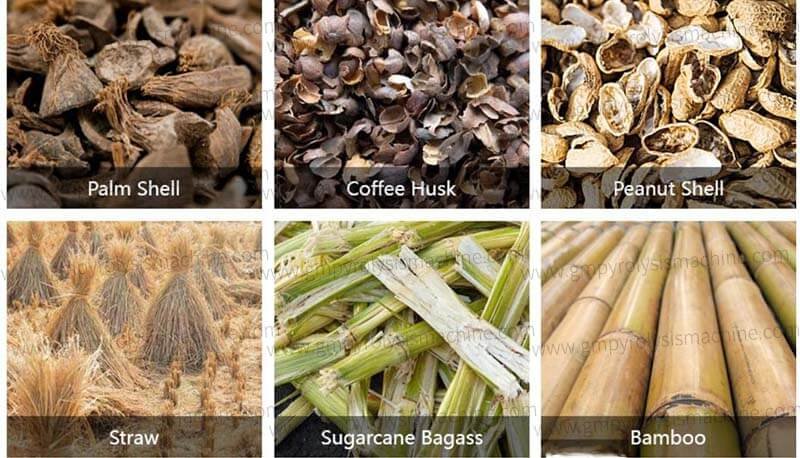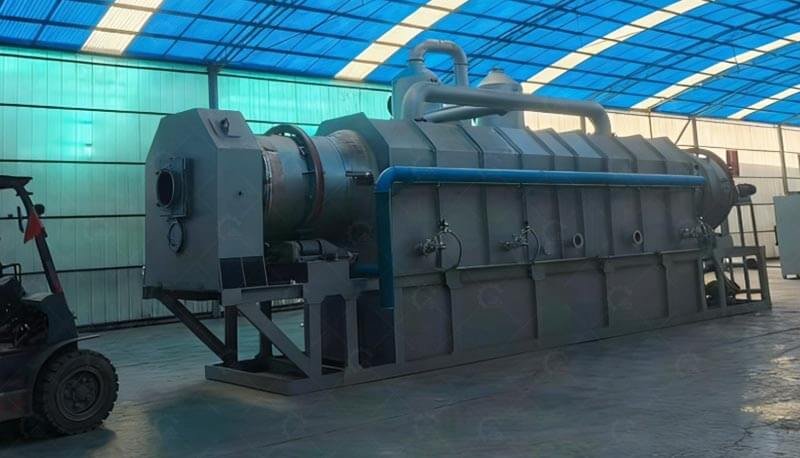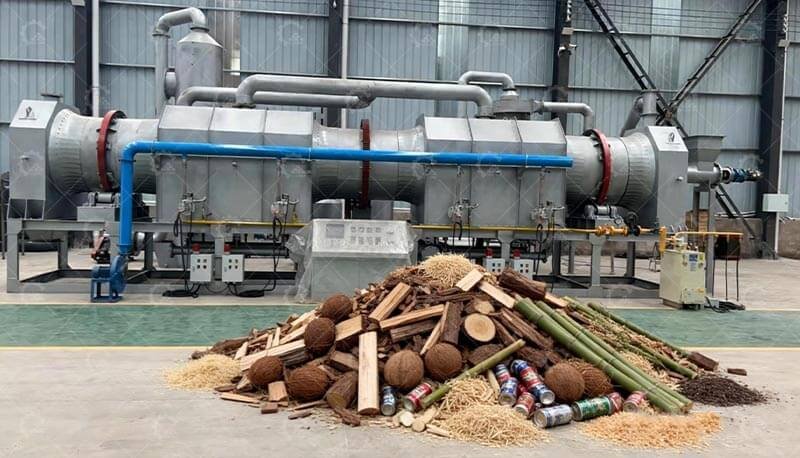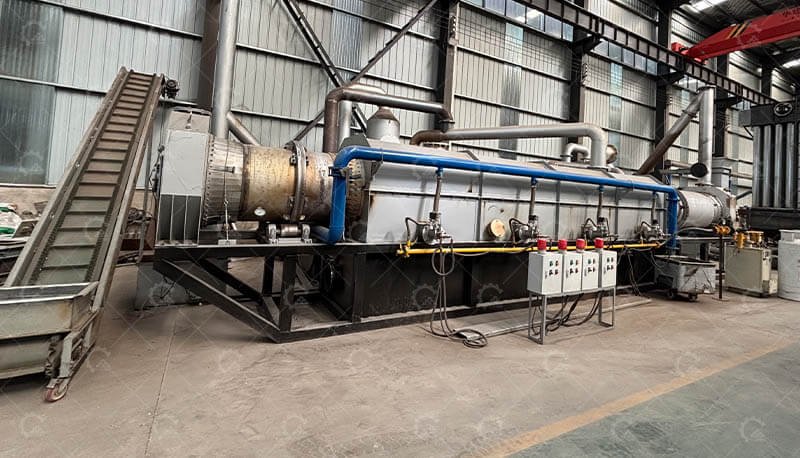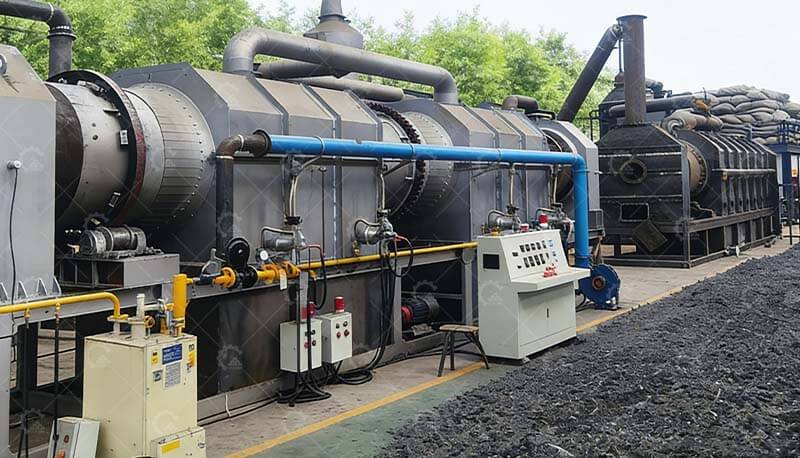Struggling with agricultural residues, wood waste, or organic byproducts? A biomass pyrolysis machine converts your problematic feedstock into high-value commodities. As global demand for sustainable waste solutions surges, investing in a continuous biomass pyrolysis system unlocks circular economies while maximizing ROI.
1. Matching Raw Materials to Your Pyrolysis Solution
Your feedstock determines machine configuration. Our biomass carbonization machines process:
Agricultural Waste: Rice husk (8-15% moisture), palm kernel shells, coconut husks, sugarcane bagasse
Woody Biomass: Sawdust (<20mm), wood chips, bamboo scraps, forestry trimmings
Specialty Feeds: Coffee husks, macadamia nut shells, olive pits (pre-shredded)
Critical Tip: High-moisture materials (>25%) require auxiliary drying systems – we’ll customize your biomass pyrolysis reactor accordingly.
2. Capacity Planning: Finding Your Daily Processing Sweet Spot
Scale defines profitability. Choose your throughput:
Operation Size | Daily Capacity | Ideal Clients |
Modular/Small Farm | 2-5 TPD | Palm oil mills, rice cooperatives |
Mid-Scale Processing | 10-20 TPD | Sawmills, coconut processing plants |
Industrial Waste Recovery | 30-100 TPD | Municipal waste facilities, biofuel producers |
Pro Insight: Our automated feeding biomass pyrolysis plants achieve 90% operational uptime – calculate ROI using your local waste disposal costs.
3. Triple Revenue Streams: Your End Products Demystified
Biochar (35-40% Yield)
Applications: Steel industry coke substitute, soil enhancer (torrefied charcoal), BBQ briquettes
Key Spec: Fixed carbon >75%, calorific value 28-32 MJ/kg
Pyrolysis Oil (45-50% Yield)
Applications: Industrial boiler fuel, bitumen modifier, refined bio-chemical feedstock
Viscosity: 15-40 cP at 40°C (adjustable via temperature control)
Syngas (15-20% Yield)
Reuse: Powers the closed-loop pyrolysis reactor, cutting external energy needs by 70%
Excess Usage: Electricity generation via gas turbines
4. Technical Edge: Why Our Systems Outperform
Negative Pressure Operation: Prevents oxygen intrusion for zero explosion risk
4-Stage Condensation: Increases bio-oil recovery by 25% vs. conventional units
Self-Sustaining Reactors: Operate 24/7 using syngas after initial warm-up
Smart PLC Control: Real-time monitoring of pyrolysis temperature (450-550°C optimal)

